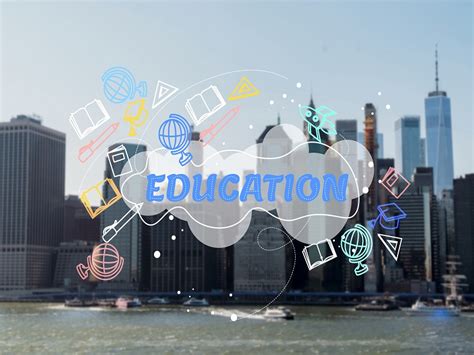In today's digital age, technology has become an integral part of our daily lives. The way we learn, interact, and access information has undergone a significant transformation. The education sector, in particular, has witnessed a remarkable shift with the integration of technology. Educational institutions, policymakers, and educators have come to realize the vast potential of technology in enhancing the learning experience. In this article, we will delve into the world of education technology, exploring its benefits, trends, and the impact it has on the way we learn.
Benefits of Education Technology

The incorporation of technology in education has numerous benefits. Some of the most significant advantages include:
- Personalized learning: Technology allows for tailored learning experiences, catering to individual students' needs and abilities.
- Increased accessibility: Online resources and digital tools make education more accessible to students with disabilities, remote or underprivileged communities.
- Improved engagement: Interactive and immersive technologies, such as gamification, virtual reality, and augmented reality, enhance student engagement and motivation.
- Enhanced assessment: Technology-based assessment tools provide immediate feedback, enabling teachers to track student progress and identify areas for improvement.
- Cost-effectiveness: Digital resources and online courses reduce costs associated with traditional teaching methods, such as textbooks and travel.
Types of Education Technology

Education technology encompasses a wide range of tools and platforms, including:
- Learning Management Systems (LMS): Platforms that facilitate course creation, distribution, and management, such as Moodle, Blackboard, and Canvas.
- Online learning platforms: Websites and apps that offer online courses, tutorials, and degree programs, such as Coursera, Udemy, and edX.
- Educational software: Programs that provide interactive learning experiences, such as simulation software, educational games, and multimedia resources.
- Mobile learning apps: Applications that enable learning on-the-go, such as language learning apps, math apps, and science apps.
- Virtual and augmented reality: Immersive technologies that simulate real-world environments, enhancing learning experiences in subjects like science, history, and language arts.
Trends in Education Technology

The education technology landscape is constantly evolving, with emerging trends that are transforming the way we learn. Some of the most significant trends include:
- Artificial intelligence (AI): AI-powered adaptive learning systems, intelligent tutoring systems, and natural language processing tools are being integrated into educational platforms.
- Internet of Things (IoT): IoT-enabled devices and sensors are being used to create immersive learning environments, enhance student safety, and improve campus management.
- Blockchain technology: Blockchain-based platforms are being explored for secure and transparent management of academic records, credentials, and assessments.
- Microlearning: Bite-sized learning modules and micro-credentials are becoming increasingly popular, enabling learners to acquire skills and knowledge in shorter intervals.
- Social learning: Social media platforms and online communities are being leveraged to facilitate collaborative learning, peer feedback, and social interaction.
Impact of Education Technology on Learning Outcomes

The impact of education technology on learning outcomes is a topic of ongoing research and debate. While there are various studies and reports highlighting the benefits of EdTech, there are also concerns about its effectiveness and potential drawbacks. Some of the key findings and observations include:
- Improved student engagement: EdTech has been shown to increase student motivation, participation, and engagement in learning activities.
- Enhanced learning outcomes: Studies have demonstrated that EdTech can lead to improved academic performance, particularly in subjects like math and science.
- Increased access to education: EdTech has expanded access to education, particularly for marginalized and underprivileged communities.
- Concerns about equity and access: Despite the benefits, there are concerns about the digital divide, unequal access to technology, and the potential for EdTech to exacerbate existing inequalities.
Future of Education Technology

As we look to the future of education technology, it is clear that the landscape will continue to evolve and transform. Some of the key trends and predictions include:
- Increased adoption of AI and machine learning: AI-powered EdTech platforms and tools will become more prevalent, enabling personalized learning and adaptive assessments.
- Growing importance of cybersecurity: As EdTech becomes more widespread, cybersecurity will become a critical concern, with a focus on protecting student data and preventing cyber threats.
- Rise of virtual and augmented reality: Immersive technologies will continue to gain traction, enabling learners to engage in experiential learning experiences that simulate real-world environments.
- Greater emphasis on digital literacy: Educators and policymakers will prioritize digital literacy, ensuring that learners develop the skills necessary to navigate the digital landscape effectively.
Gallery of EdTech Innovations






What is education technology?
+Educational technology refers to the use of technology to enhance and support learning in educational settings.
What are the benefits of education technology?
+The benefits of EdTech include personalized learning, increased accessibility, improved engagement, enhanced assessment, and cost-effectiveness.
What are some examples of education technology?
+Examples of EdTech include learning management systems, online learning platforms, educational software, mobile learning apps, and virtual and augmented reality tools.
As we conclude this article, we hope that you have gained a deeper understanding of the importance and impact of education technology. From personalized learning to increased accessibility, EdTech has the potential to transform the way we learn and interact with educational content. As the landscape continues to evolve, it is essential to stay informed and engaged with the latest trends, innovations, and research in the field. We invite you to share your thoughts, experiences, and insights on education technology in the comments section below.
